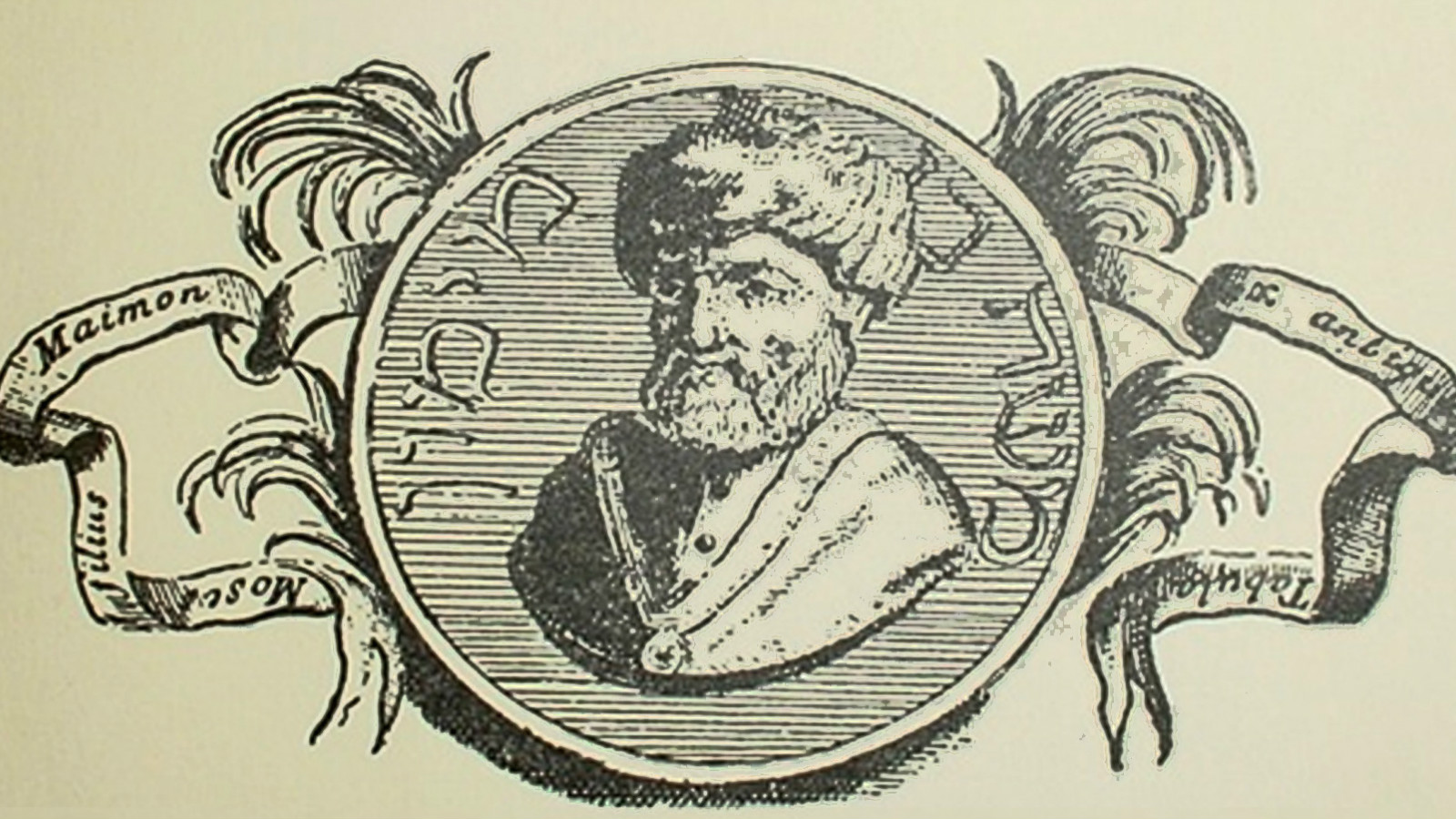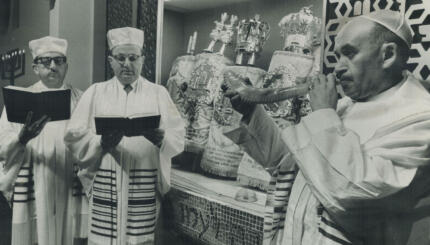In Chapter 1, Section 1 of the Laws of Repentance, Maimonides wrote:
With regard to all the precepts of the , both affirmative and negative, if a person transgresses any one of them, either willfully or in error, when he repents and turns away from his sin, he is under a duty to confess before God, blessed be He, as it is said, ‘when a man or woman shall commit any sin that men commit…they shall confess their sin which they have done’ (Numbers 5:6‑7)–this means confess in words; and this confession is an affirmative precept.
And Maimonides continues:
How does one confess? By saying, ‘I beseech Thee, 0 Lord, I have sinned, I have acted perversely, I have transgressed before Thee, and have done thus and thus, and lo, I am contrite and ashamed of my deeds and will never do this again. This constitutes the essence of confession.
“This constitutes the essence of confession”–these are the core components and basic framework of confession. Of course, various additions may be made, but they must always center around the three fundamental components, which are:
- Acknowledgment of sin (“I have sinned, I have acted perversely, I have transgressed’);
- Remorse (“I am contrite and ashamed of my deeds’);
- Resolution for the future (“I will never do this again’).
These three stages constitute “the essence of confession.”

Help us keep Jewish knowledge accessible to millions of people around the world.
Your donation to My Jewish Learning fuels endless journeys of Jewish discovery. With your help, My Jewish Learning can continue to provide nonstop opportunities for learning, connection and growth.
And Maimonides adds:
The more one confesses and elaborates on this matter, the more praiseworthy he is. And, also, those under an obligation to bring sin‑offerings and trespass‑offerings, who bring their sacrifices for sins committed either in error or willfully, are not acquitted [of their sins] by means of these offerings until they repent and confess in words…
In other words, sacrifice alone cannot bring acquittal; confession is a sine qua non, and without it repentance cannot take place. Even if one has decided to abandon sin and to radically alter one’s way of life, it does not amount to a complete act of repentance; without confession acquittal is denied. Confession is mandatory not only for those who, having sinned are obligated to bring sacrifices, but also for “those who have incurred the judicial penalty of death or punishment of stripes” –“they do not attain acquittal through death or [by the punishment of]stripes, until they repent and confess. Similarly, one who inflicts a wound on another person or causes him monetary damage, is not acquitted even after he has paid [the injured party] what he owes him, until he confesses and penitently resolves never to commit the same offense again…”
Note carefully that only the first half of the formula of confession which Maimonides sets forth as obligatory is identical with the formula employed by the High Priest in the Temple on the Day of Atonement (“I beseech Thee, 0 Lord! I have sinned …;” cf. Mishnah Yoma 3:8). In place of the second half (“I am contrite and ashamed … I will never do this again”), the High Priest used to offer a prayer and say: “I beseech Thee, 0 Lord, acquit me of the iniquities and the transgressions and the sins which I have committed before Thee!” Maimonides deleted the prayer portion from the formula of remorse (“I am contrite and ashamed and resolution for the future (“I will never do this again”).
Elsewhere in the Mishnah Torah (Laws of Sacrificial Procedure, Chapter 3, Section 14), Maimonides ruled that every sacrifice must be accompanied by confession. “Whoever brings a burnt‑offering, confesses; a sin‑offering, confesses; a trespass‑offering, confesses …” What is the formula of confession to be used by one who sins in error and is obligated to bring a sin offering? The answer to this question seems, at first, to belong to the Laws of Repentance, in which is found the formula for confession quoted above. However, in the Laws of Sacrificial Procedure, Maimonides sets forth another formula of confession (Chapter 3, Section 15).
How does one confess? One says, ‘I have sinned, I have acted perversely, I have transgressed, and have done thus and thus and I have come back in repentance before Thee and this is my acquittal.’
If we compare the two formulae of confession, the following significant differences can be discerned between them. The first one that is in the Laws of Repentance has the phrase “before Thee” appear immediately after “I have sinned, I have acted perversely, I have transgressed;” while in the second formula, in the Laws of Sacrificial Procedure, it appears later, in the phrase “I have come back in repentance before Thee.” At the same time, in the second formula, the element of resolution for the future (“I will never do this again”) has been dropped; instead, there appears the phrase “and this is my acquittal,” whose meaning is far from clear.
In light of this, it may be said that the concept of confession has more than one dimension. It is not an act that has an independent existence, nor is it something that stands on its own. It is, rather, the finale, the conclusion of another act–that of “repentance.”
As we have already explained on several occasions, repentance is not a sudden occurrence. It does not begin at nightfall of the eve of the Day of Atonement, just moments before the recitation of confession. Repentance sprouts forth and grows in the course of a long and drawn‑out process typified by doubt and speculation, soul-searching and spiritual reckoning. First comes the inner stirring which generates actual repentance. A great gap often intercedes between the idea and the act, for crystallized thinking is the end product of intuitive, undefined thoughts. They take hold of one in the darkness of the night, they emerge from the innermost recesses of the secret self, and man tries to fend off some of them and hide them from himself, not to mention, from others. The road that leads from these first stirrings until the actual contemplation of repentance is long, indeed and even then, after the rational idea is clearly formed in thought, it must be reborn and translated into action.
To do this necessarily entails expressing the thought of repentance in words, and working it out in logical terms. Pure thought on its own, no matter how exact and penetrating, is simply not grasped until it is formed into words. We know many truths about ourselves that we do not dare to express in public, and even avoid saying them to ourselves. It is not easy to give expression to our thoughts–all the more so when these thoughts are unflattering–but without doing so no act of confession can take place. Indeed, confession is no simple matter. Were it an easy thing to confess, the Torah would not have demanded it of us, for what need is there for a commandment to do something that requires no effort? And if Maimonides made a point of stressing the requirement of doing confession, that alone is a sign that it is only achieved with difficulty.
Confession is not something that comes about suddenly, and it is certainly not the mechanical recitation of a set formula–it is, rather, part and parcel of repentance, the climactic finale of a drawn‑out, exhausting process. And just as repentance cannot be considered complete until it has brought man to confess, so too, confession is not valid unless it bursts forth from within the fiery depths of the furnace of repentance.
A basic principle of the laws of property is that “matters [that are only] within the heart are of no significance” (literally: “are not matters”) (See: Babylonian , Kiddushin 49b). If your intention is serious, if you really plan something–say it. As long as man has not confessed, his “repentance” in not considered complete. He may think in his heart: “From now on, I shall observe the Sabbath, I’ll close my store at the start of the Sabbath, I shall be straight and honest in all my dealings and cheat no one, I’ll study Torah at regular and set times.”
All these are commendable thoughts, but, as long as they are not expressed verbally, they do not comprise an act of repentance. Confession is the climax of the process of repentance; only after confession has been made can repentance be effective. Is this not what Maimonides wrote in Chapter 3, Section 2 of the Laws of Repentance? “And what is repentance? That the sinner abandon and strip himself of his sin and resolve in his heart never to do it again … and also that he be contrite over [what he has done in] the past … and he must confess in words, with his lips, and declare verbally all that which he has resolved in his heart.”
Thus, according to Maimonides, confession is the concretization of repentance. Speech, the verbalizing of confession, endows the thought of repentance with reality. It is the climax and final chord of the long and tortuous internal process of repentance.
Excerpted from On Repentance in the Thought and Oral Discourses of Rabbi Joseph B. Soloveitchik, edited by Pinhas Peli. Reprinted with permission of the publisher. © 1996 Jason Aronson Inc.



